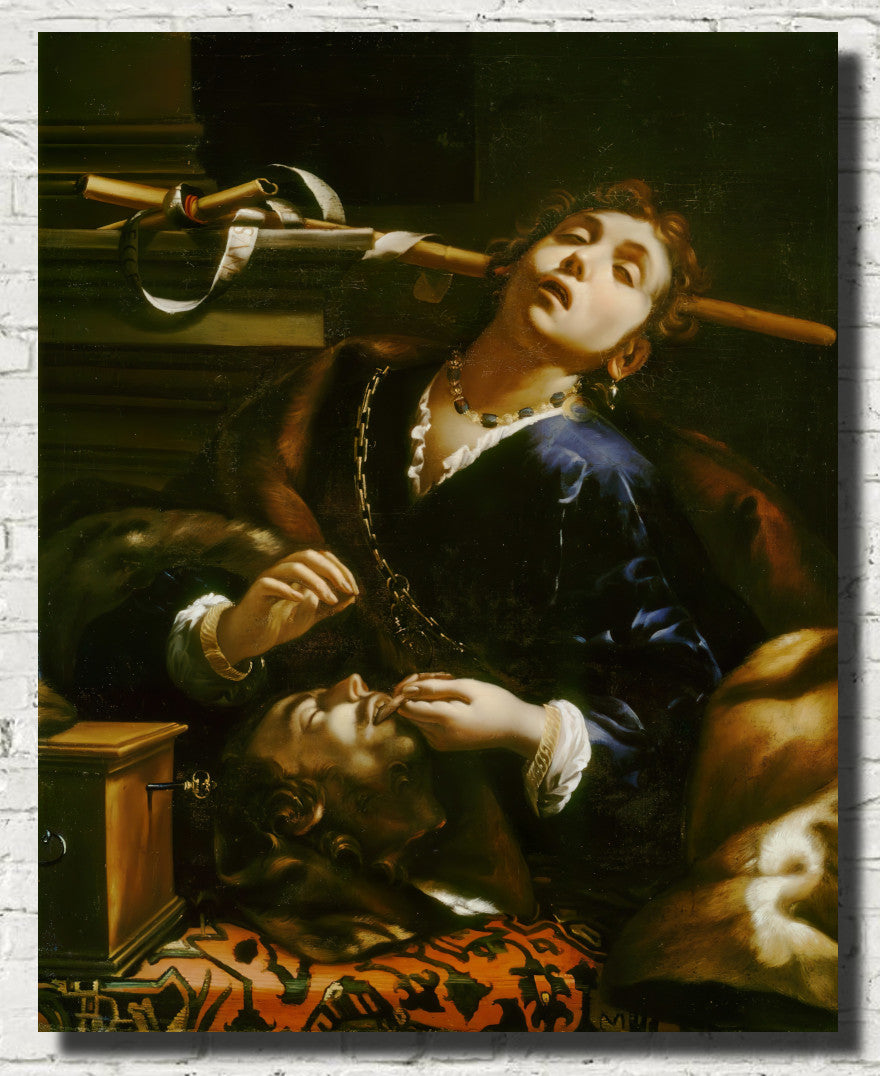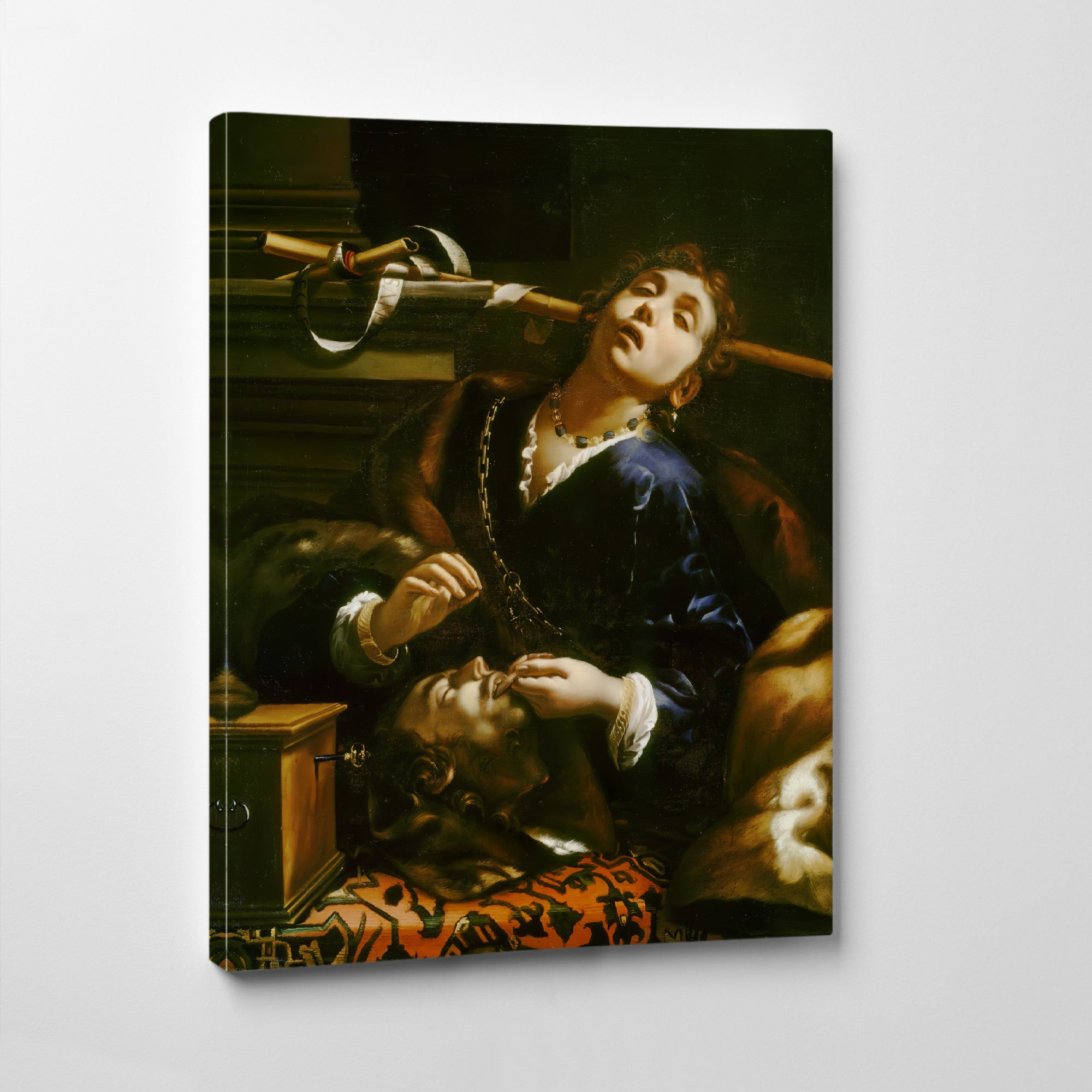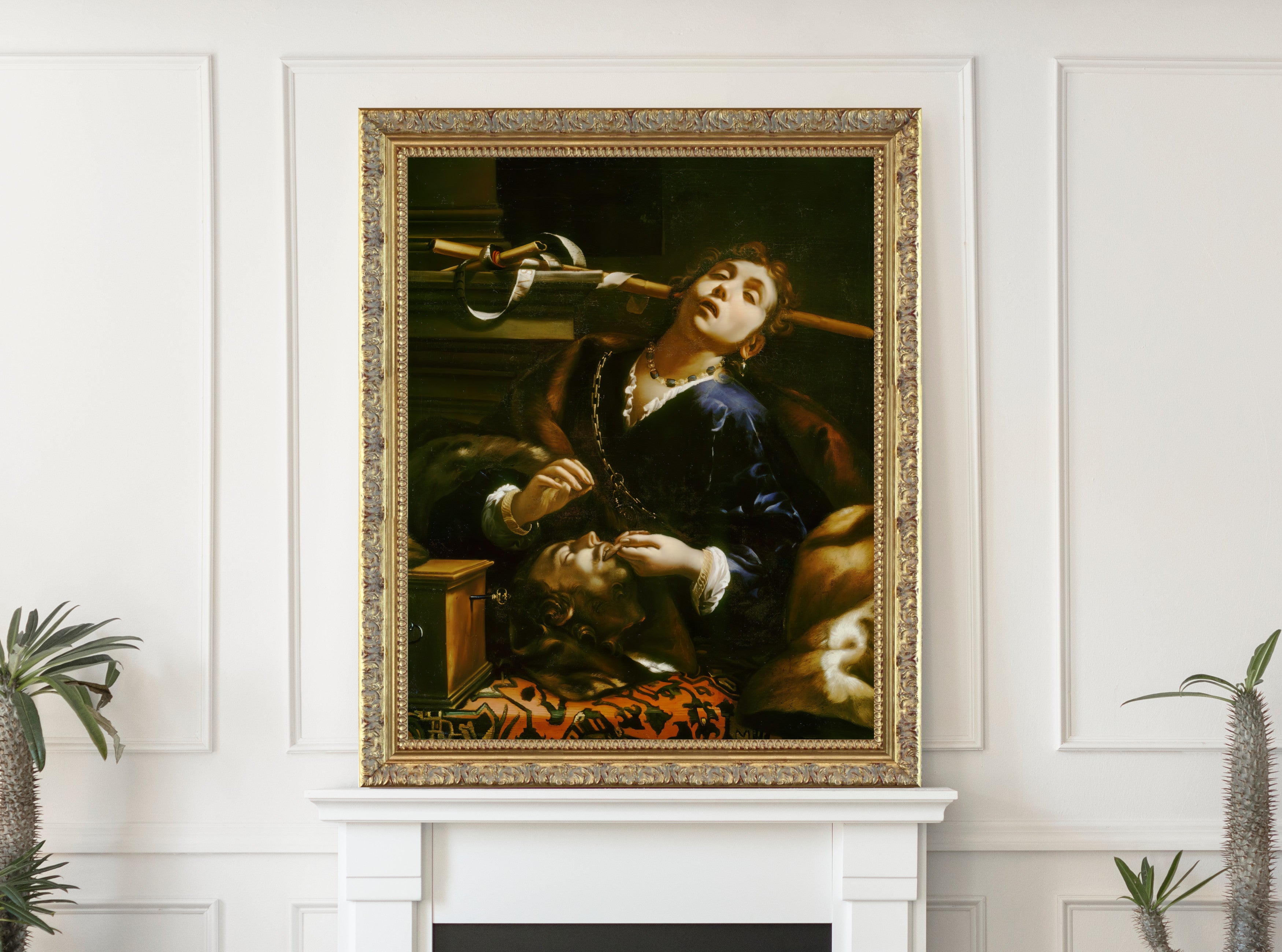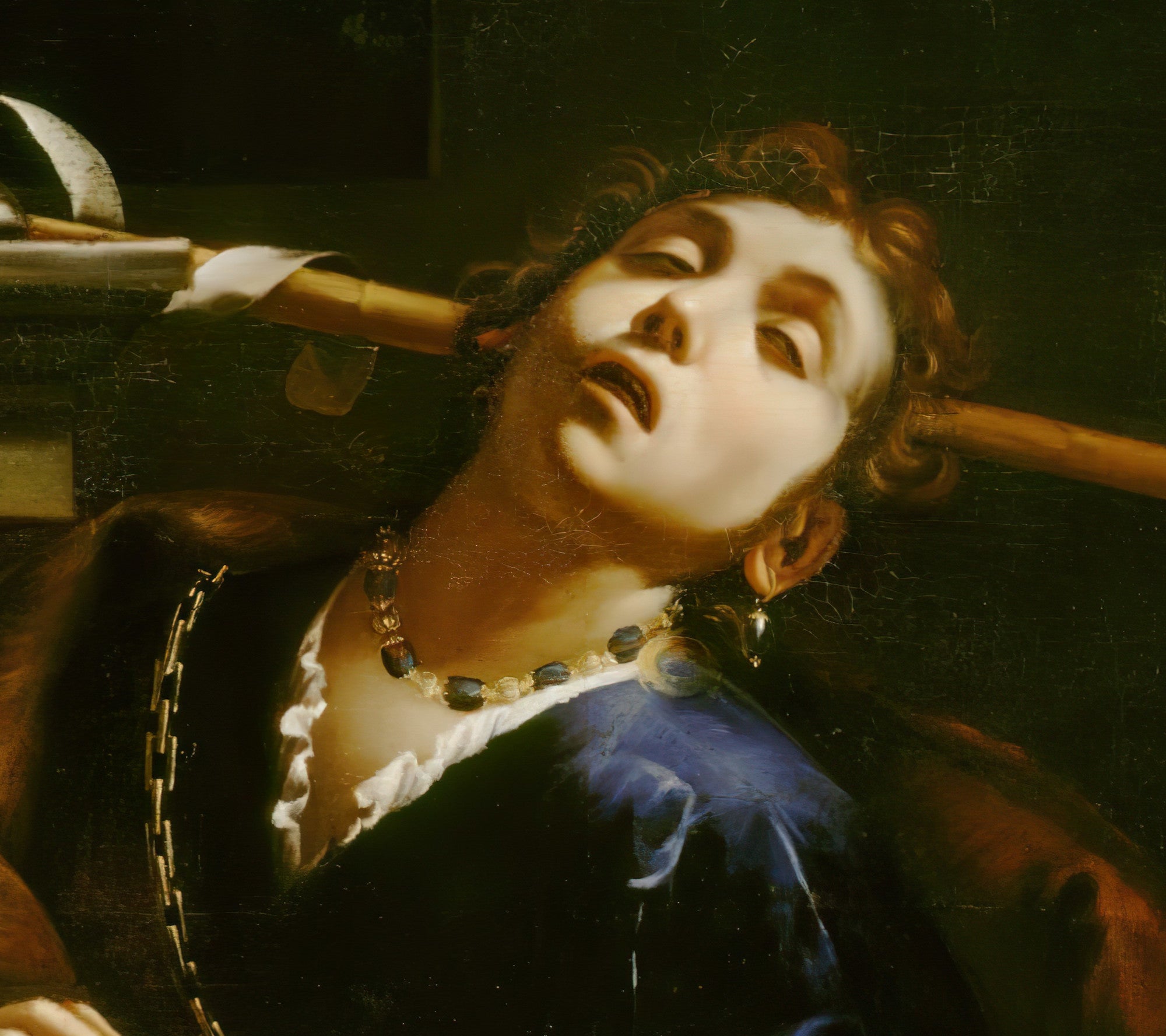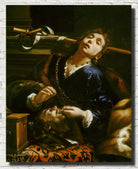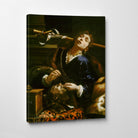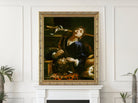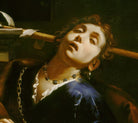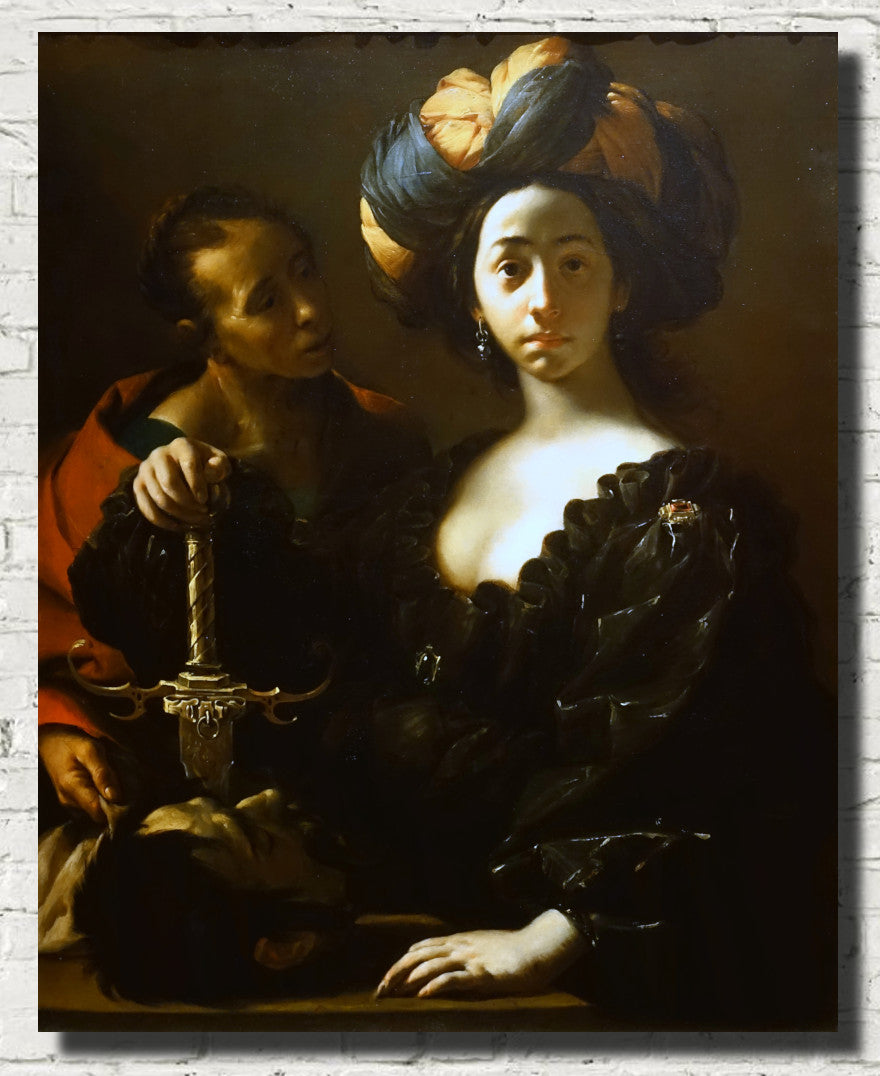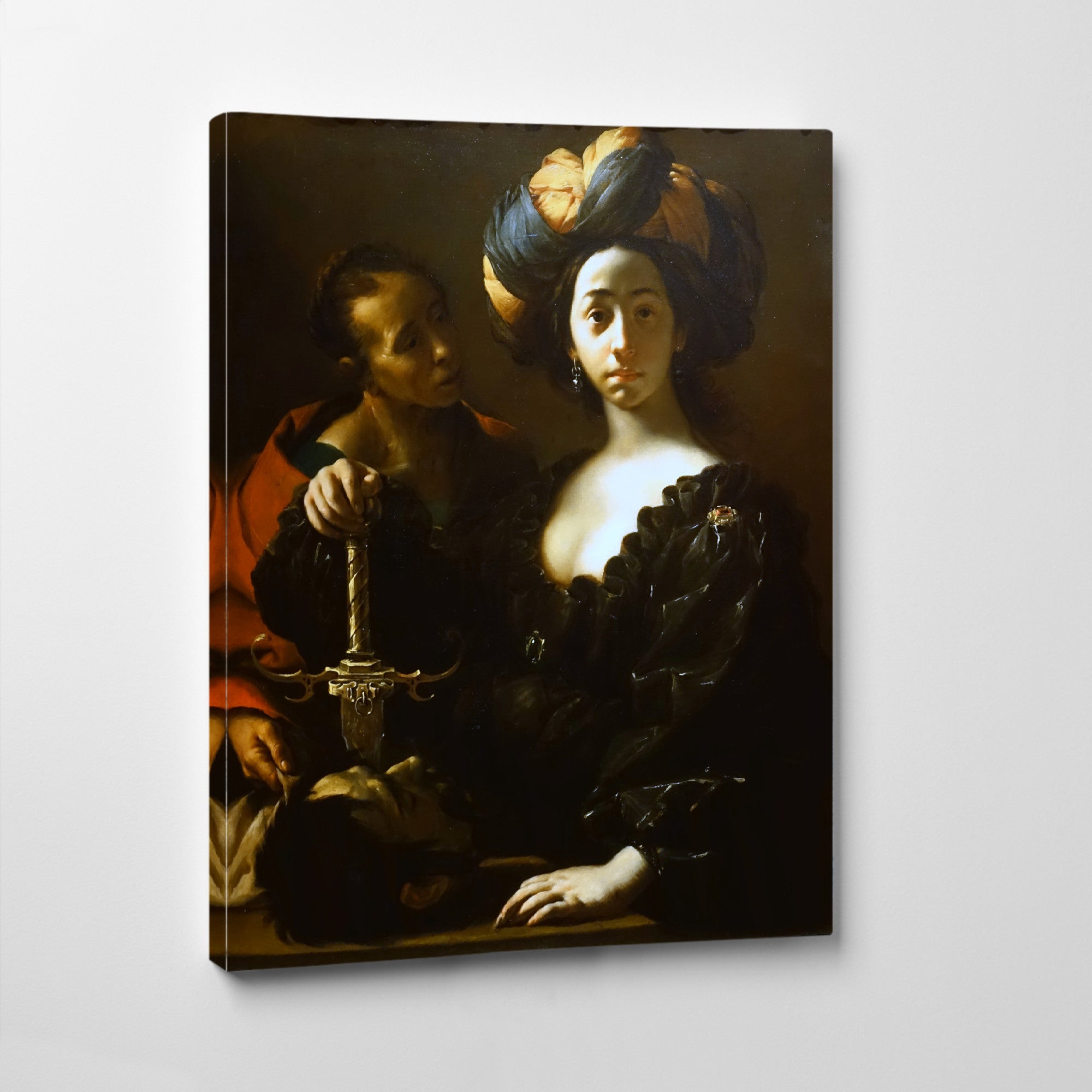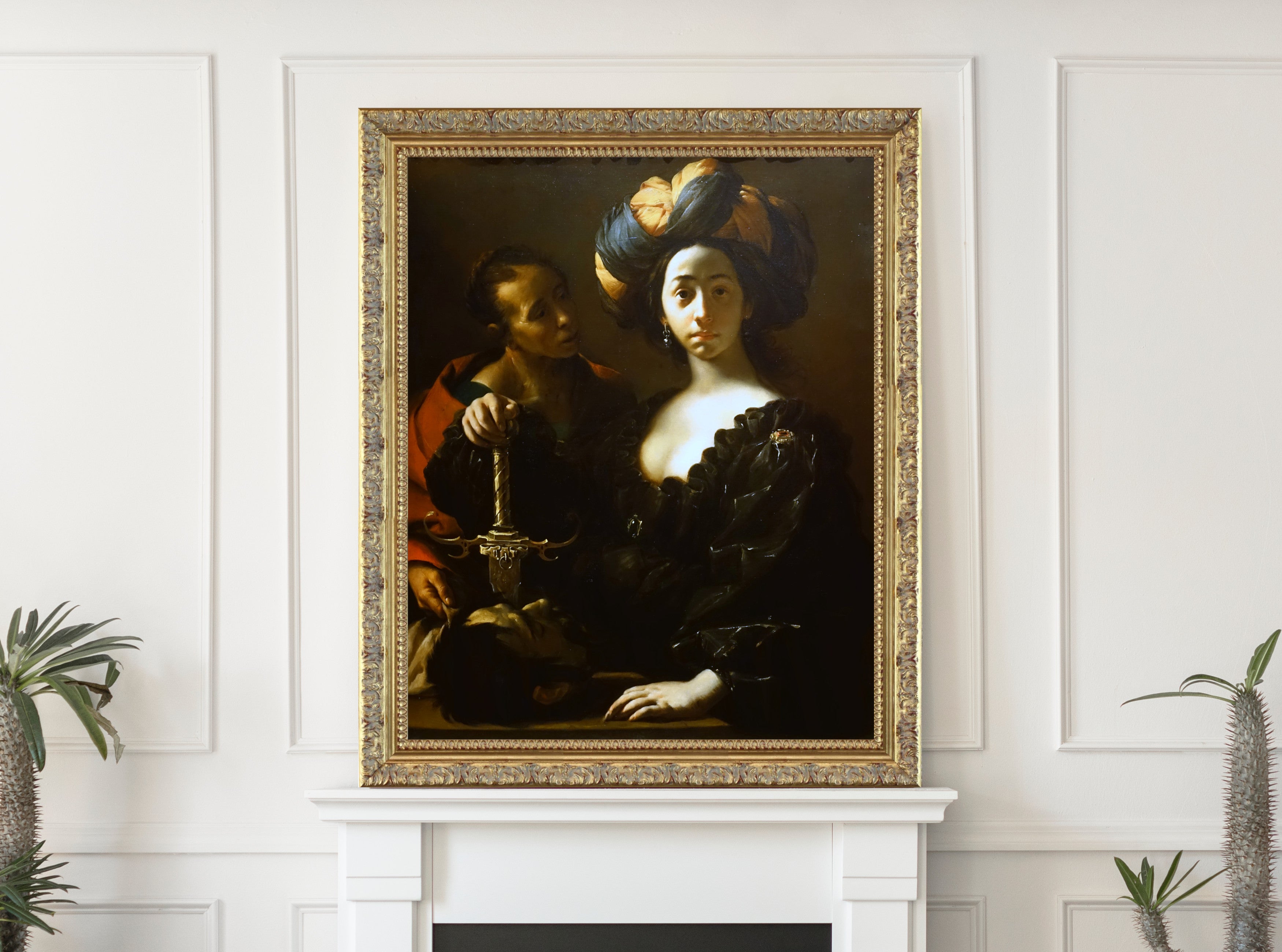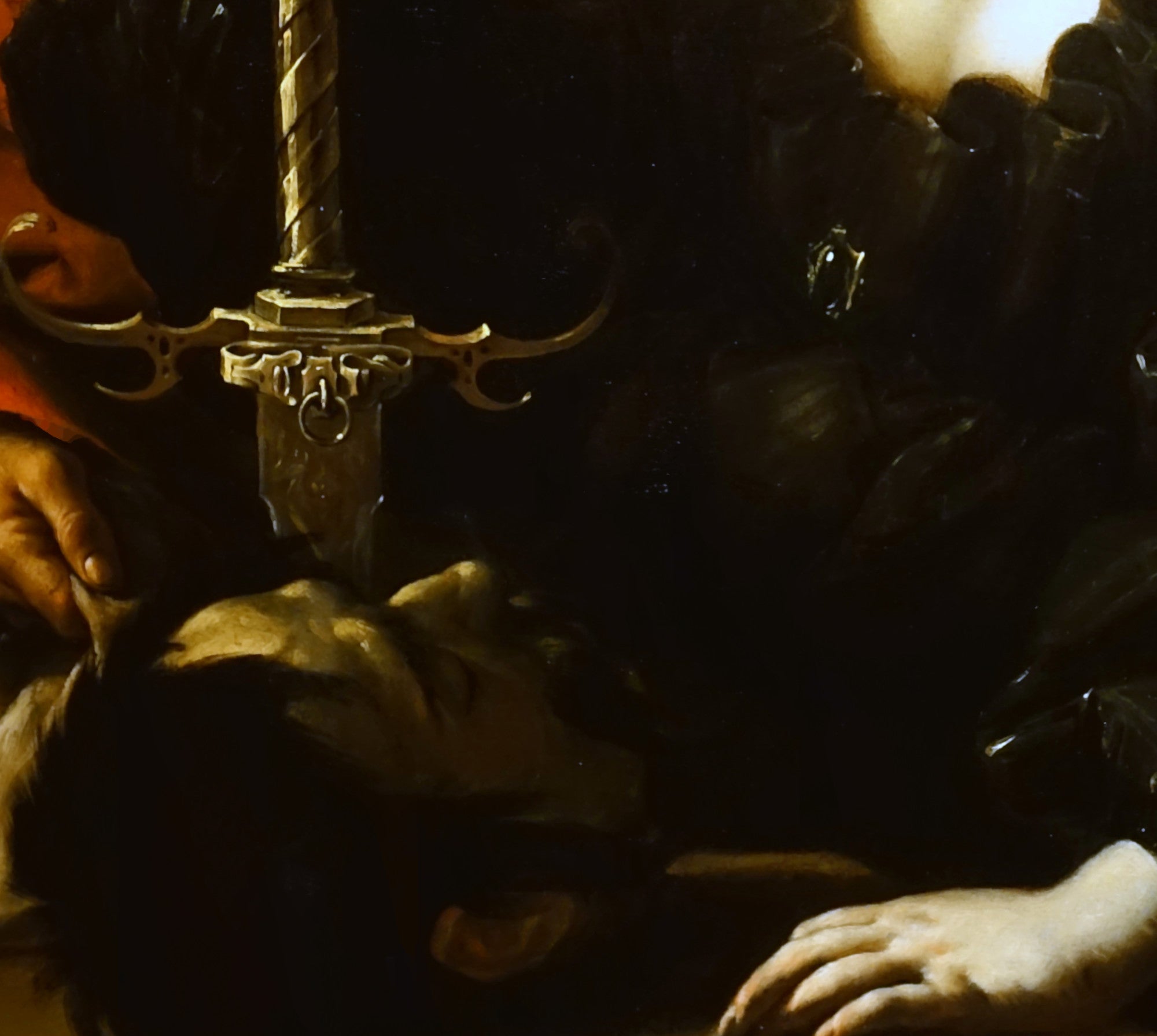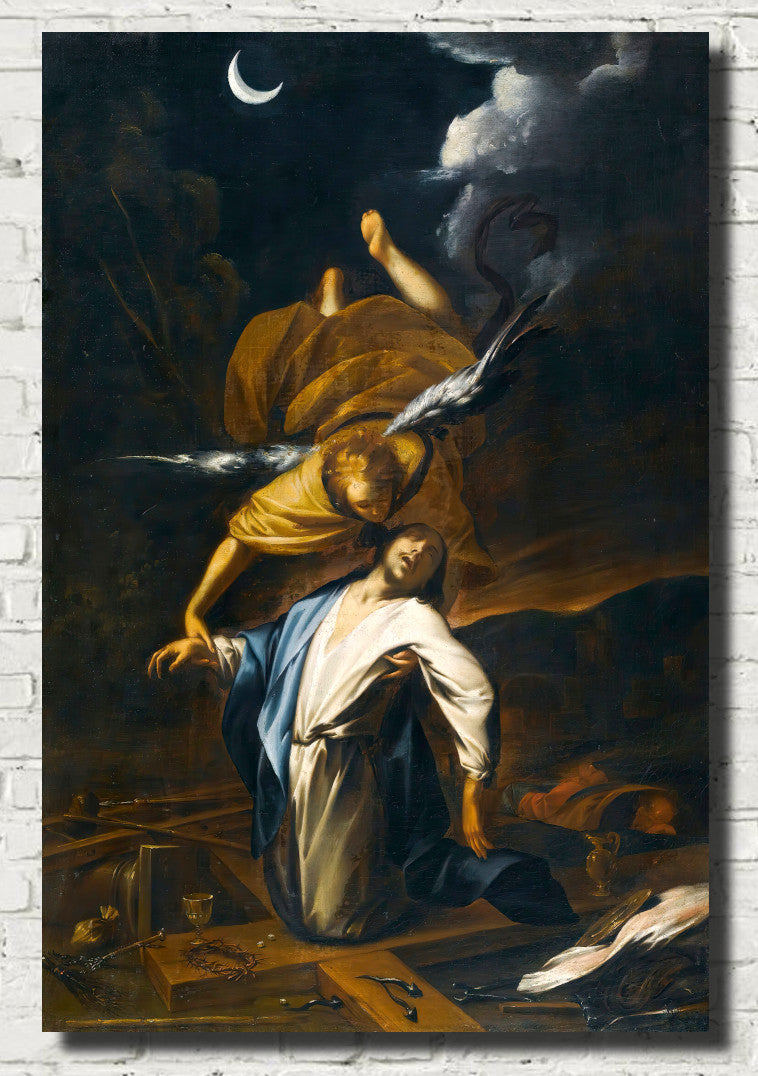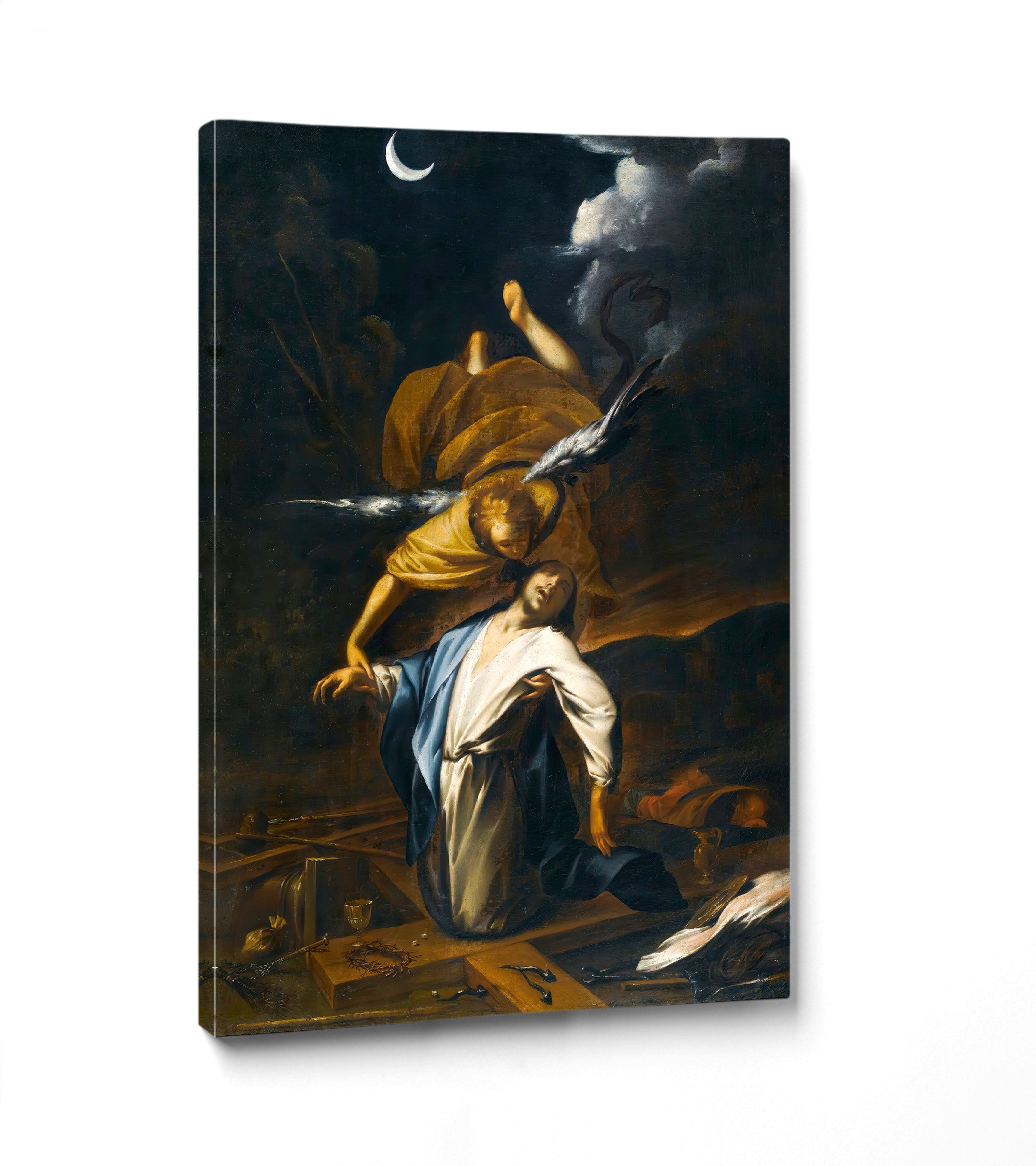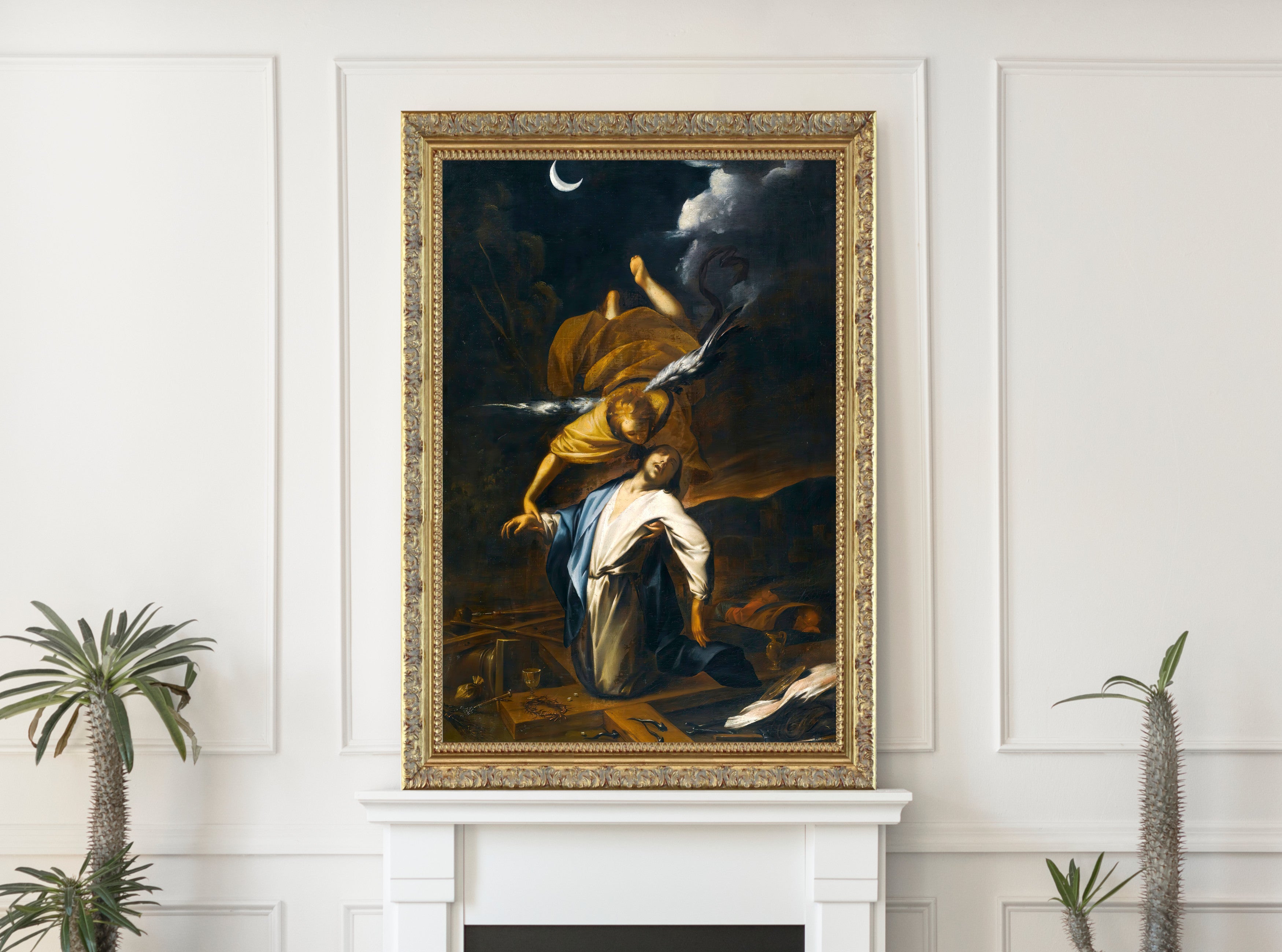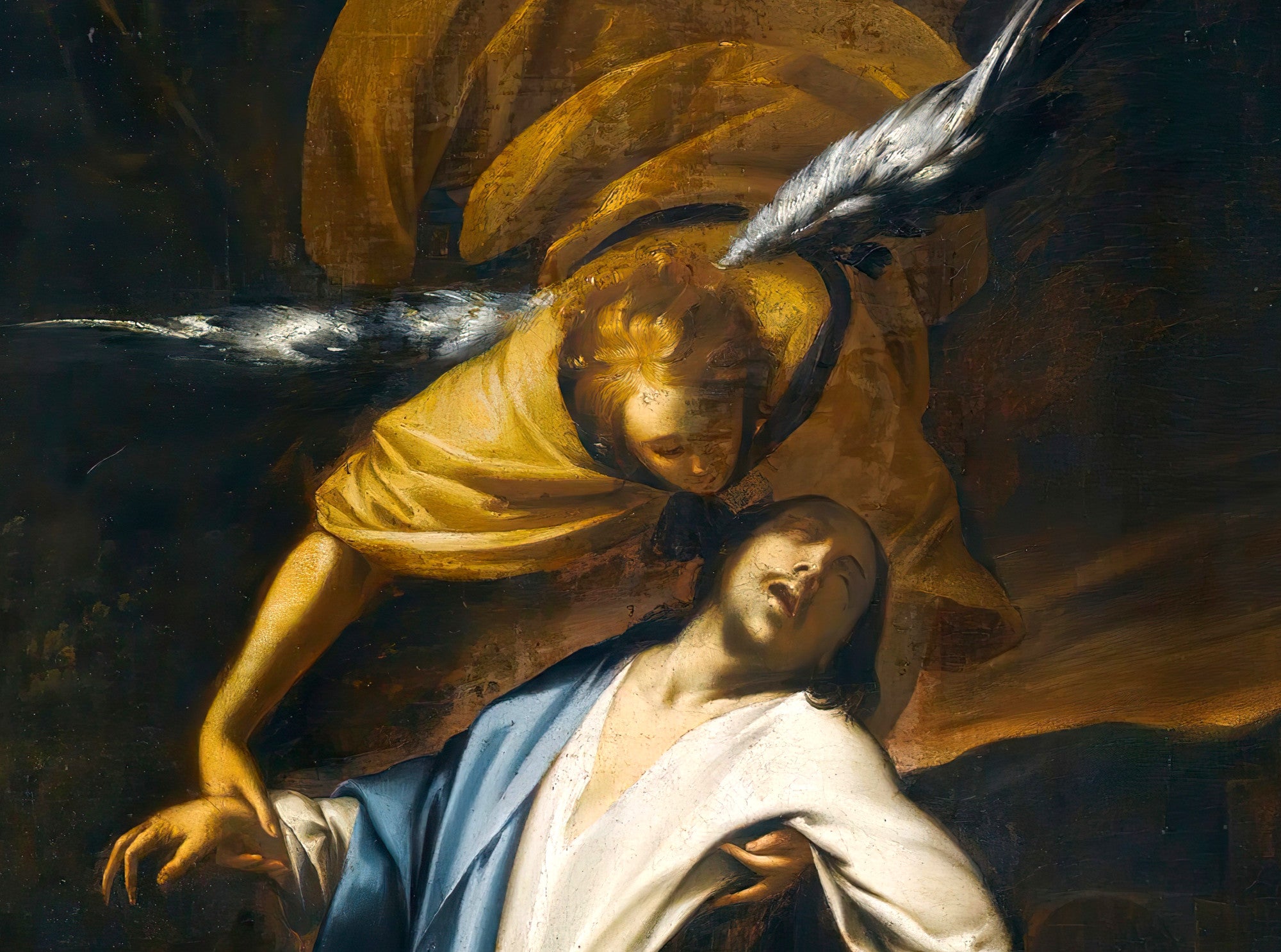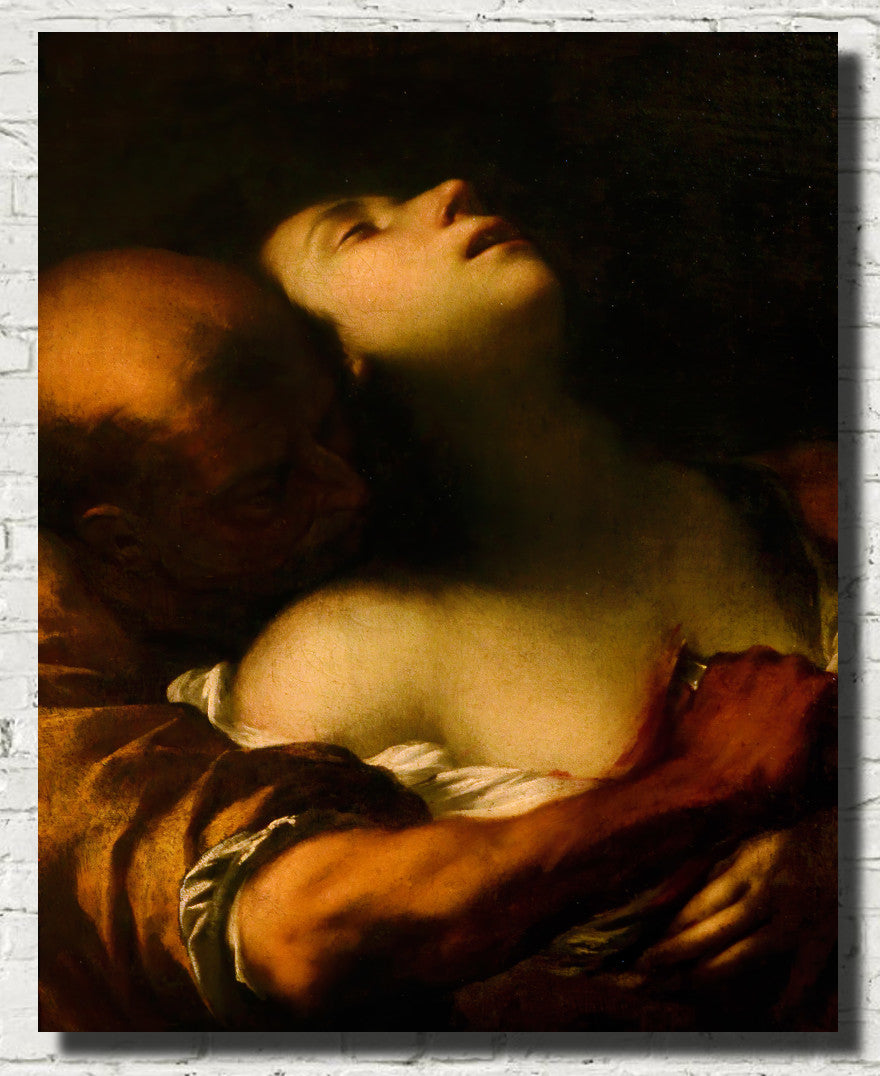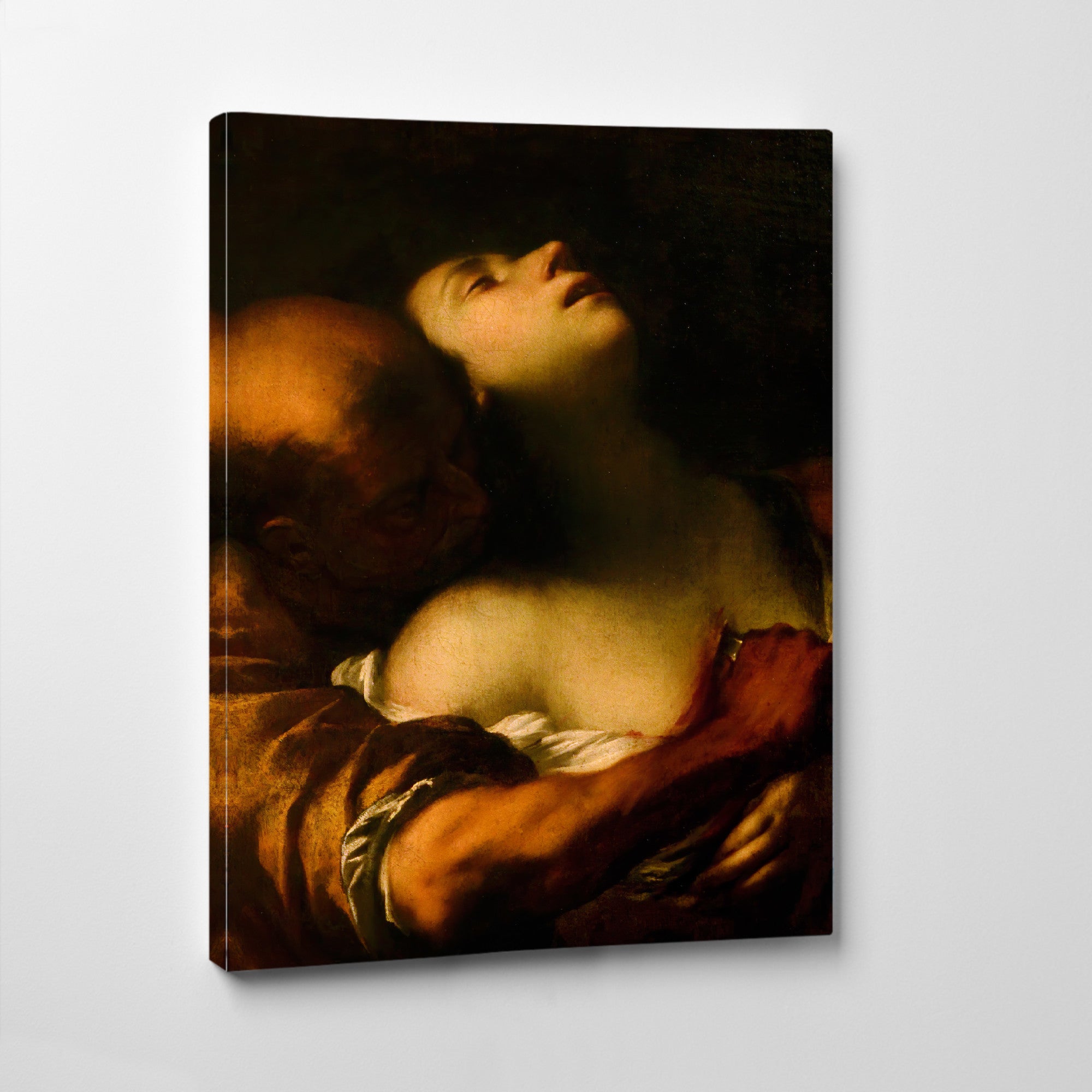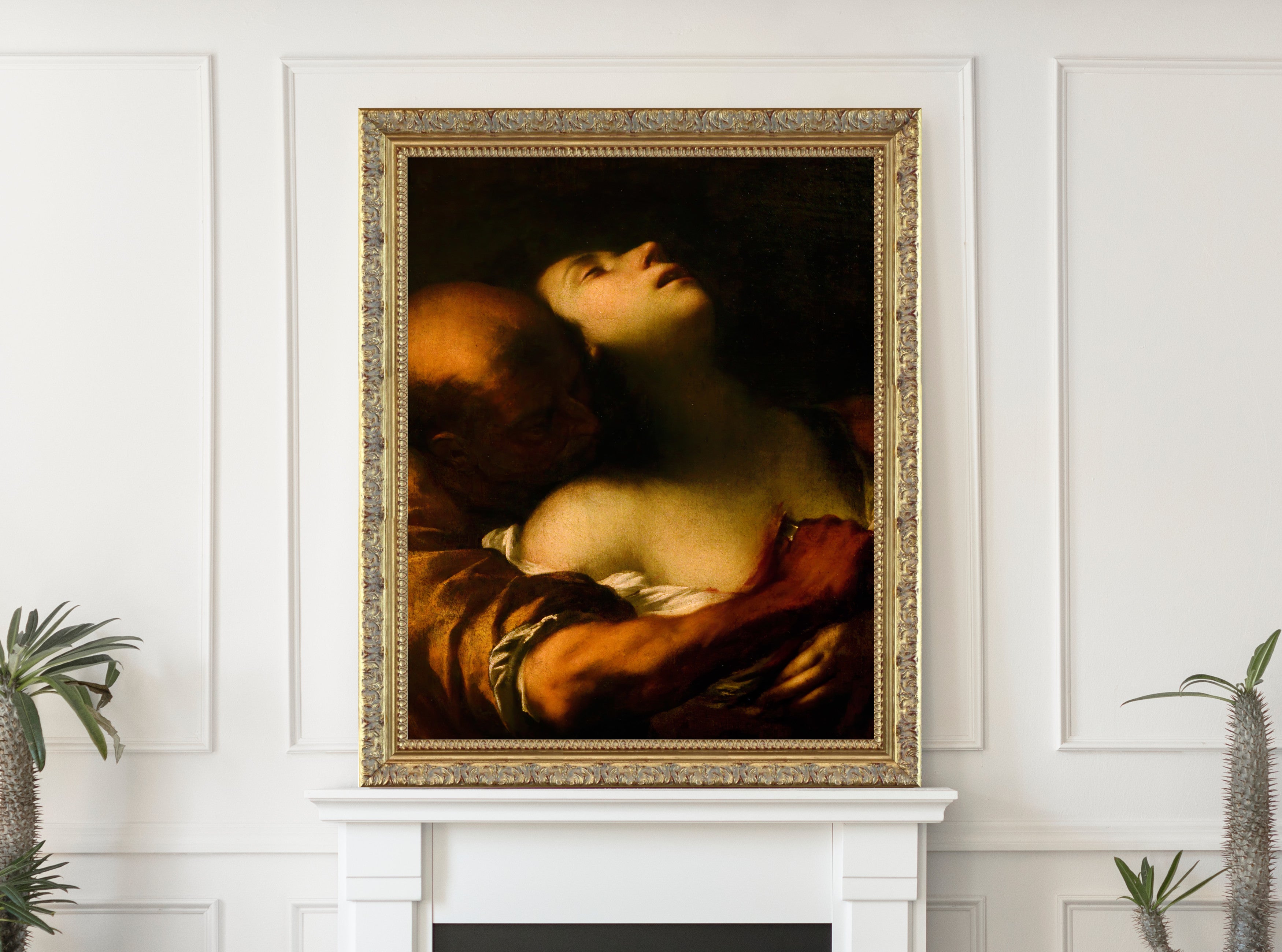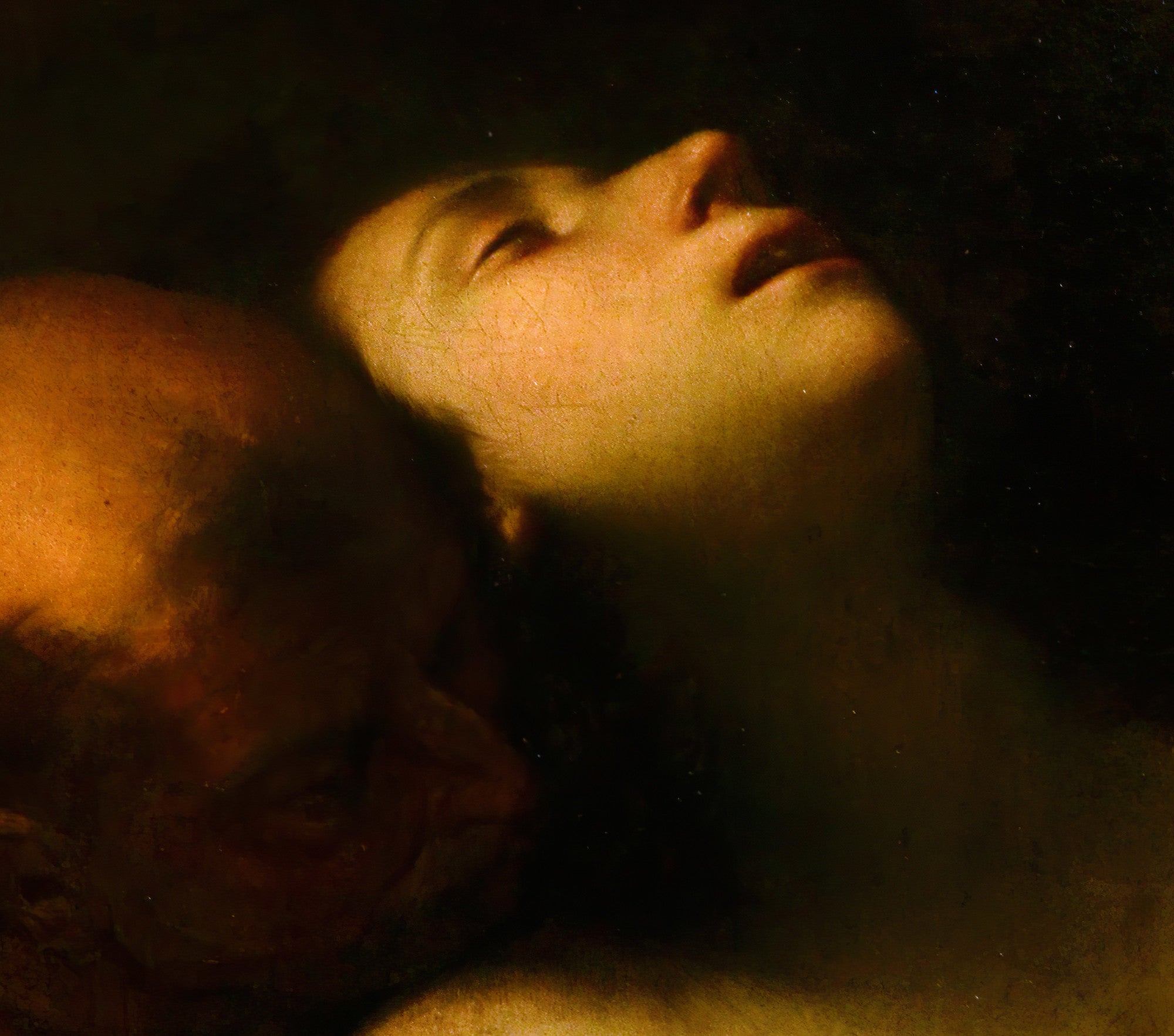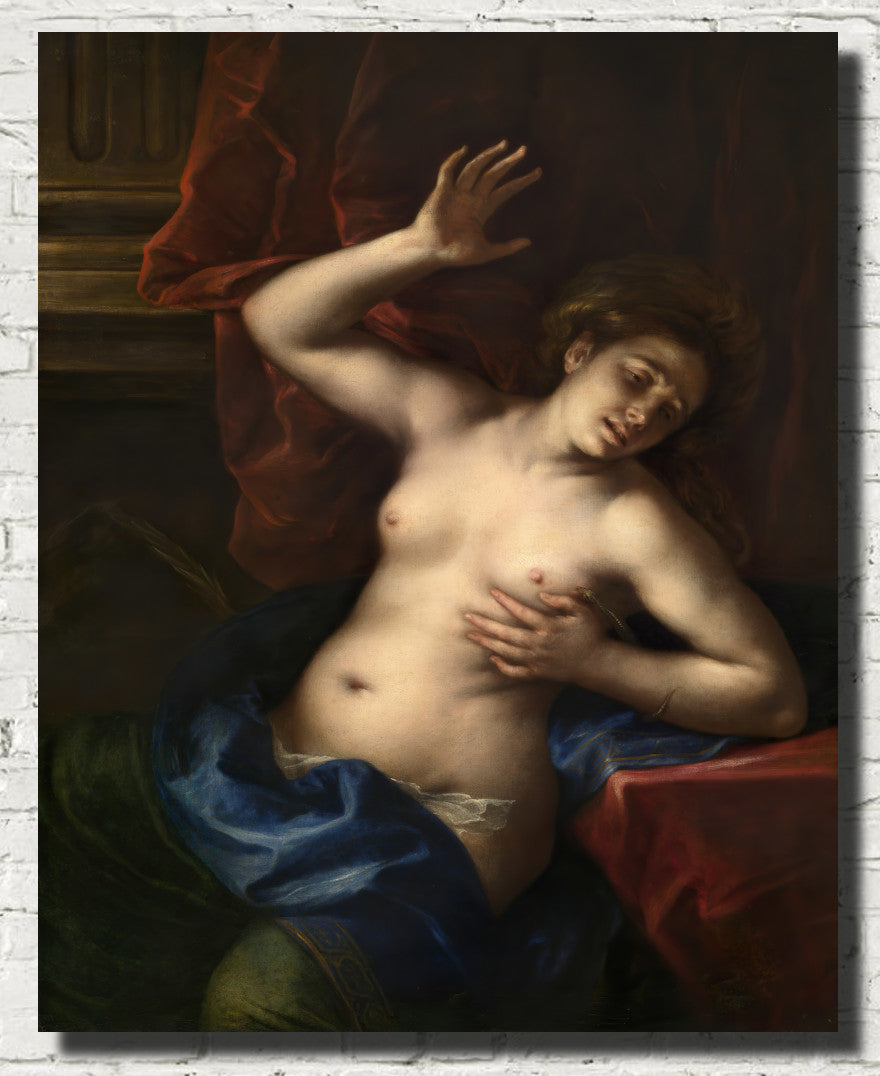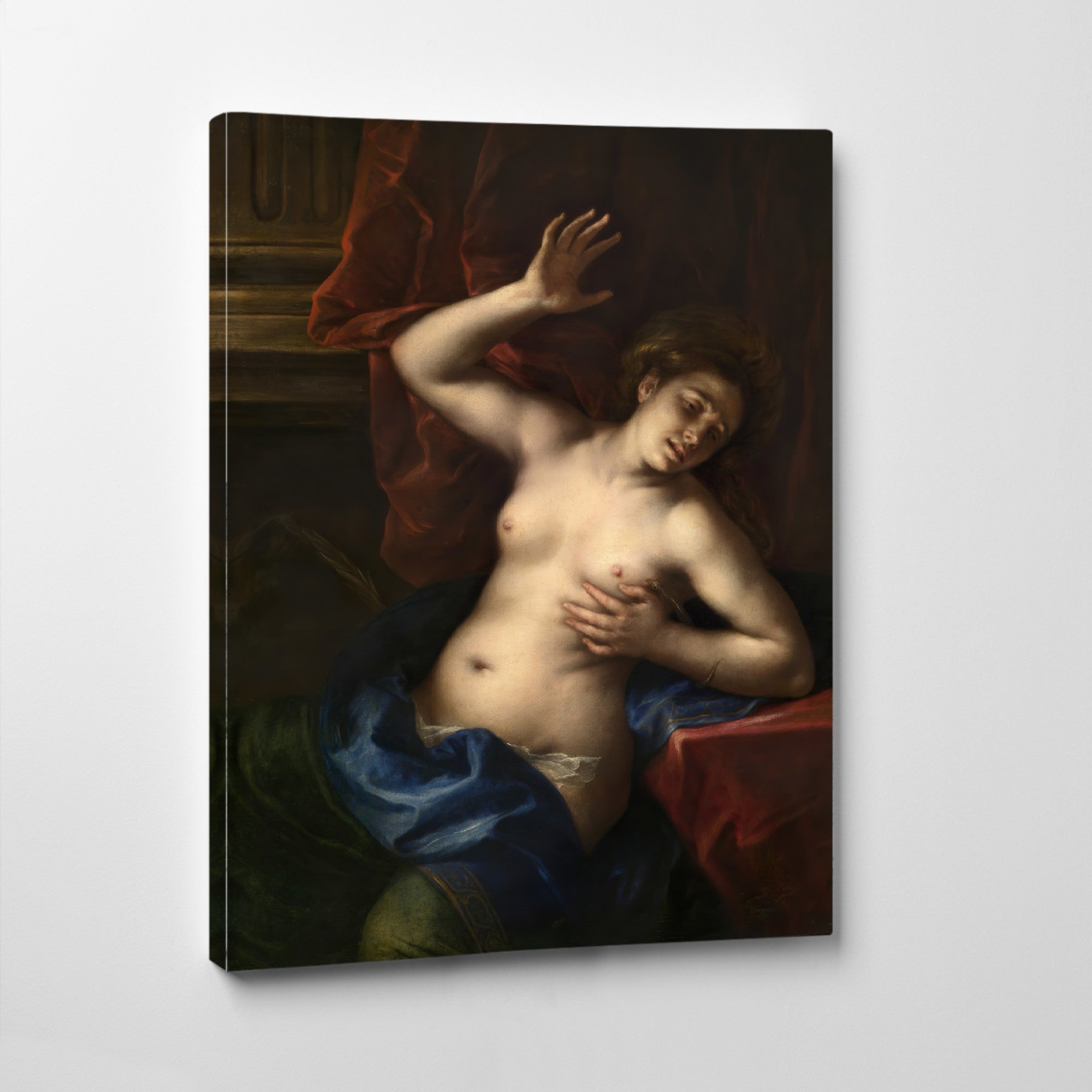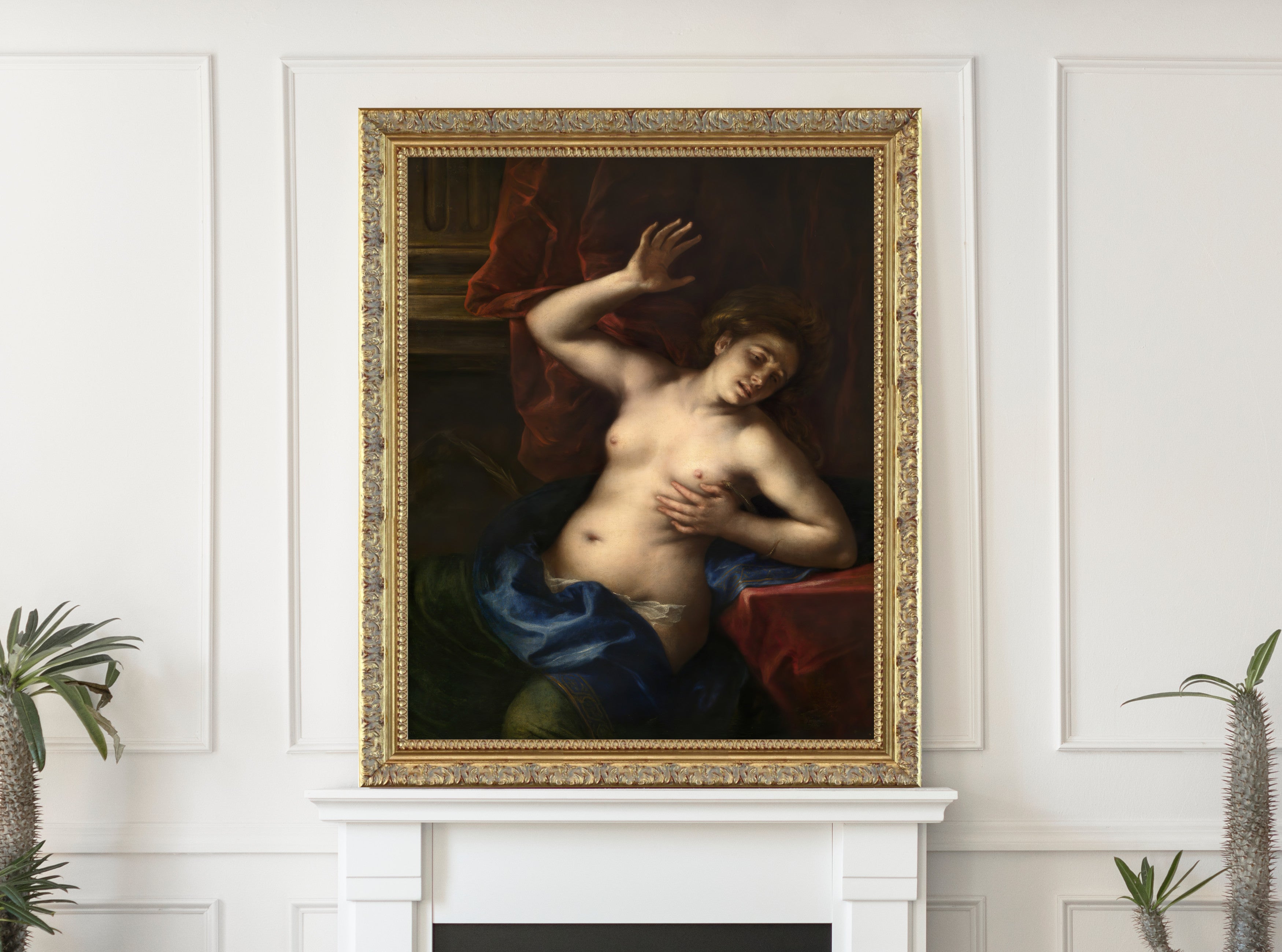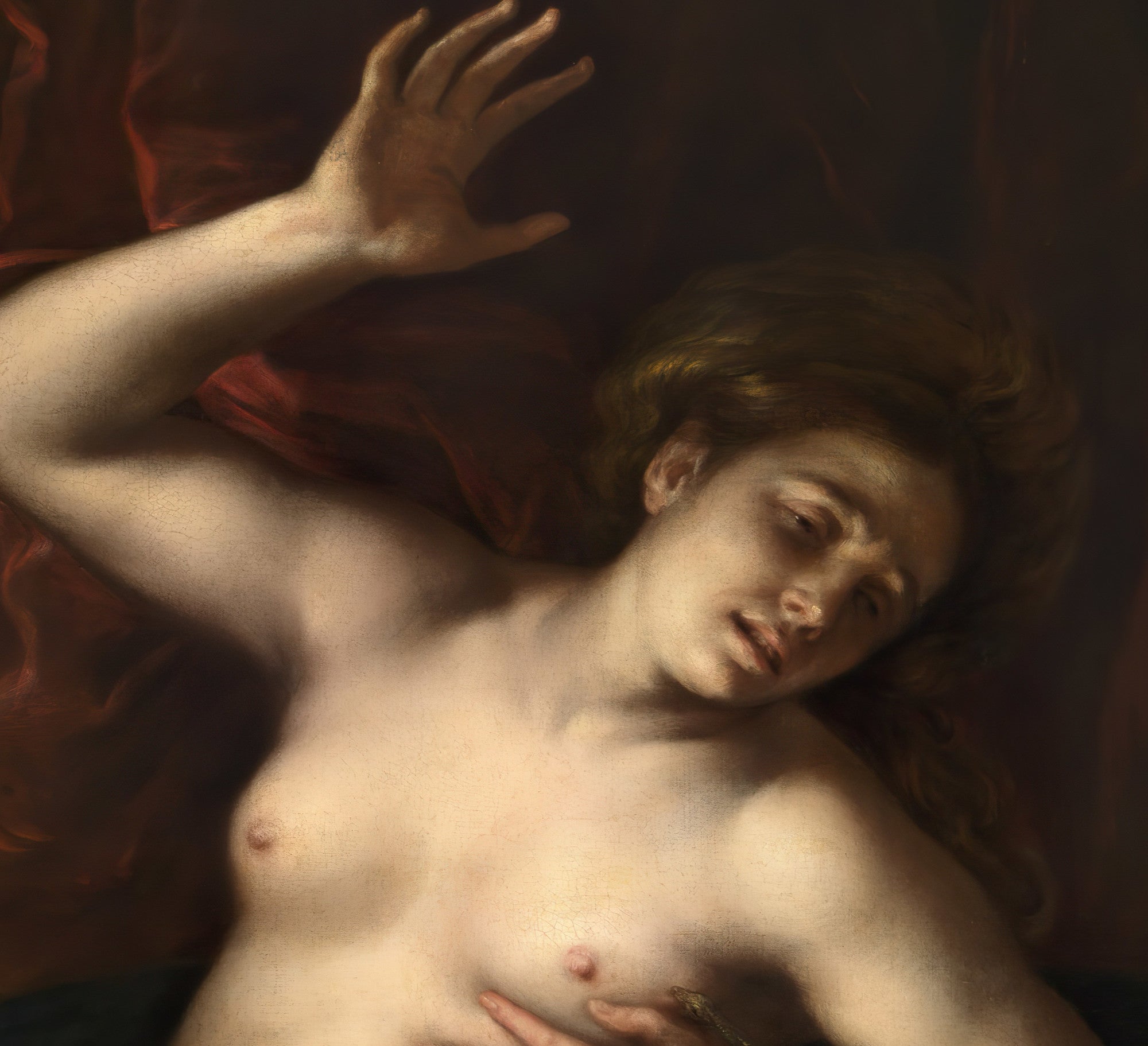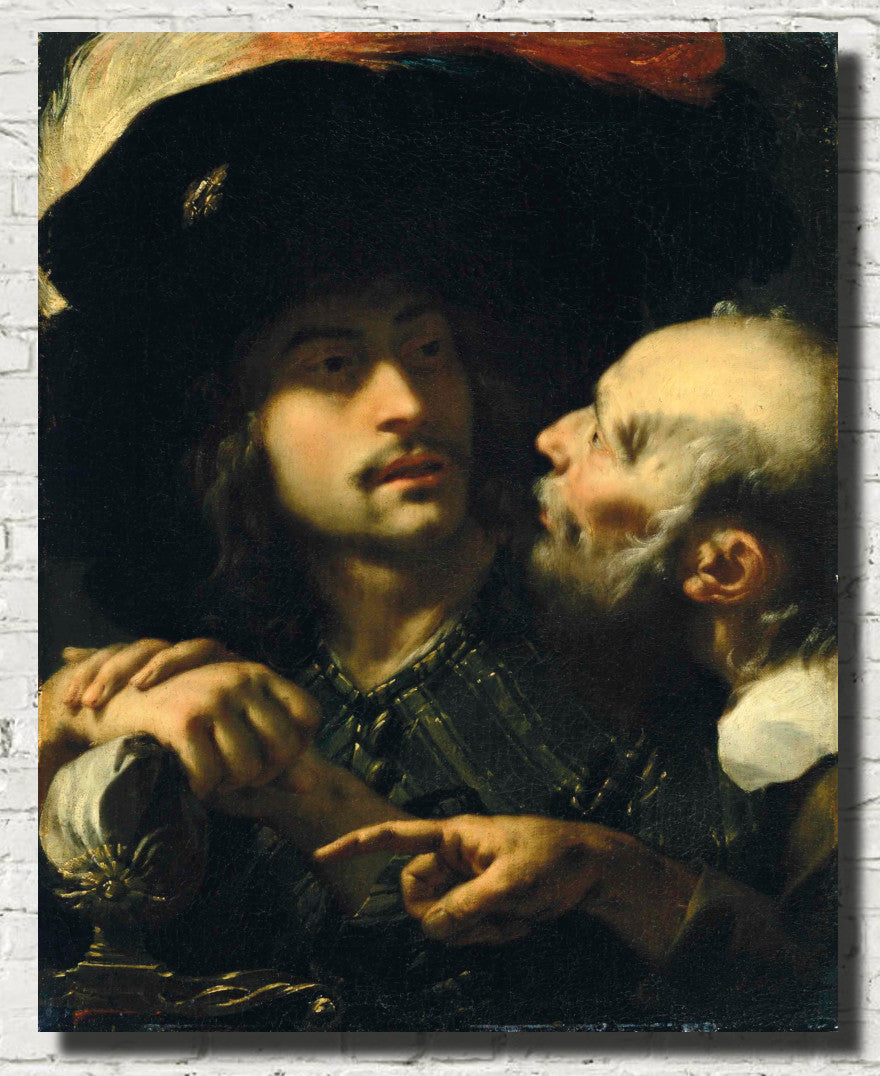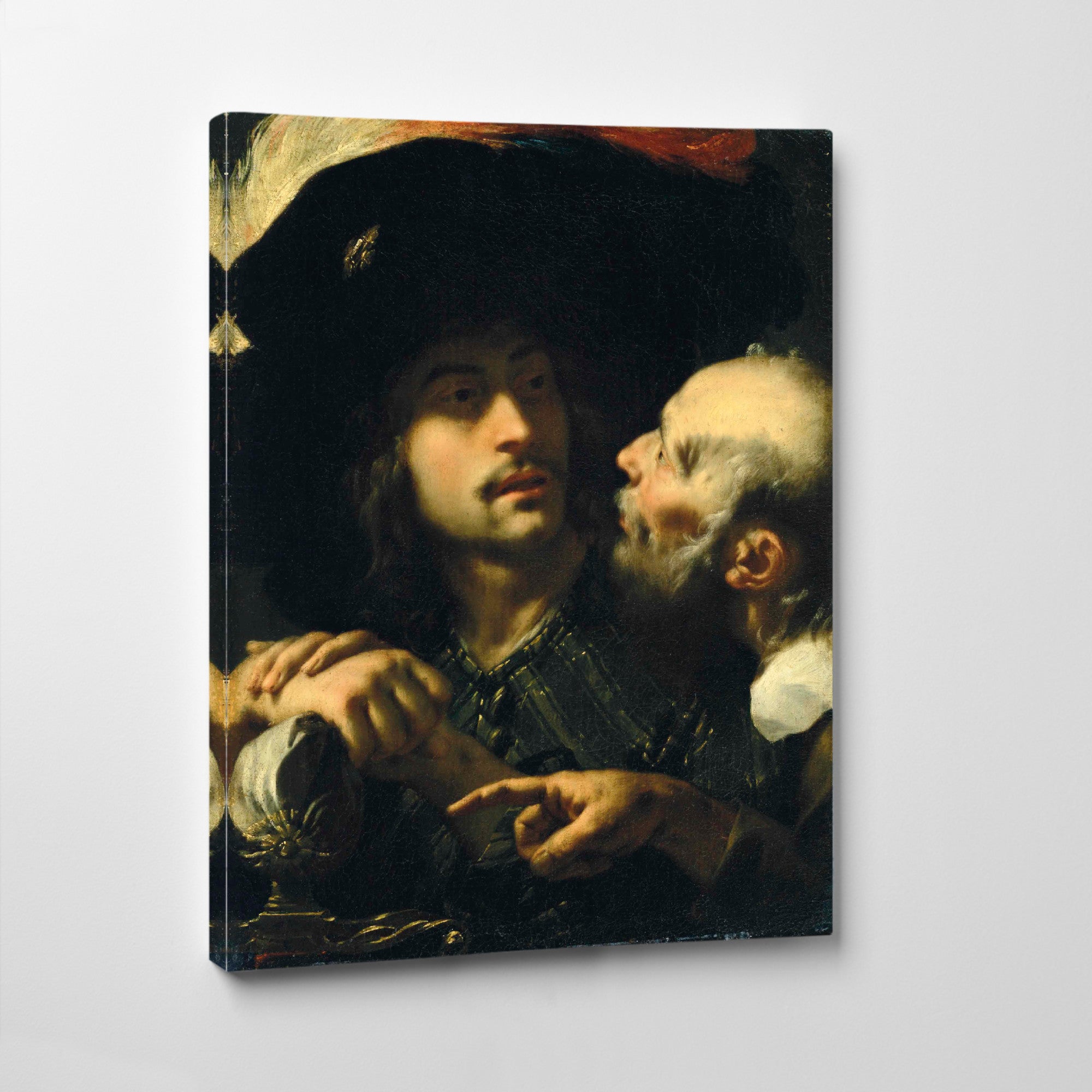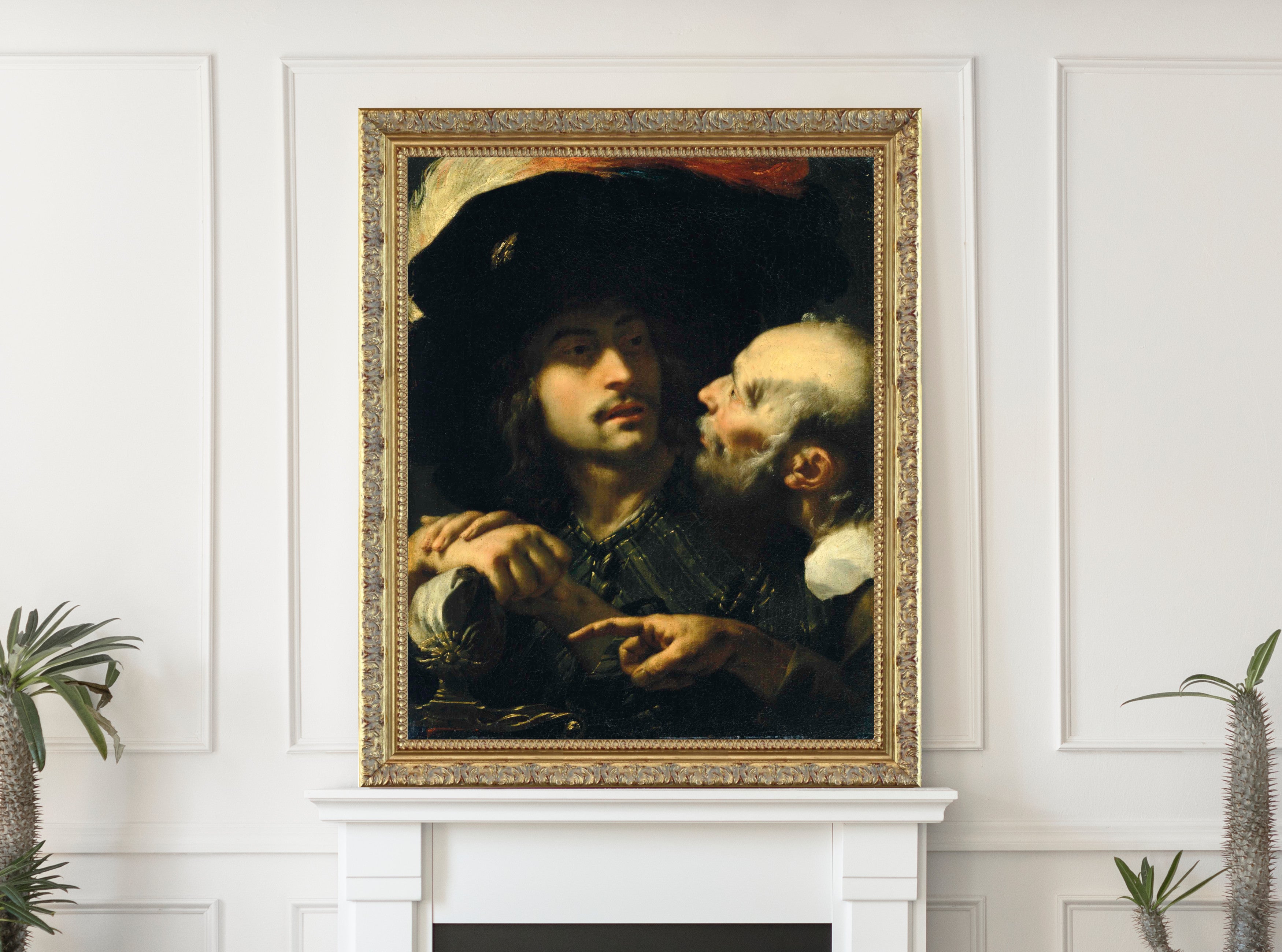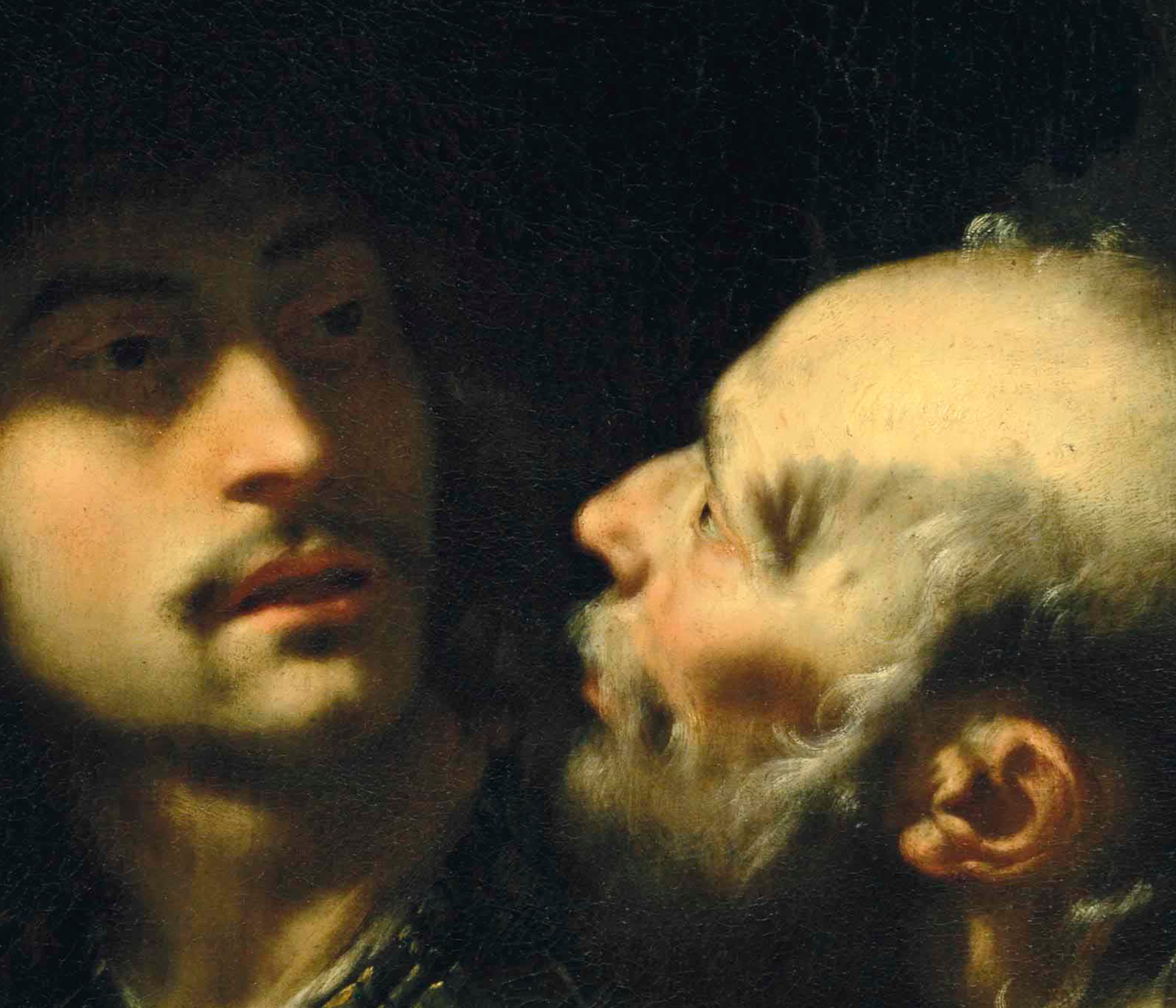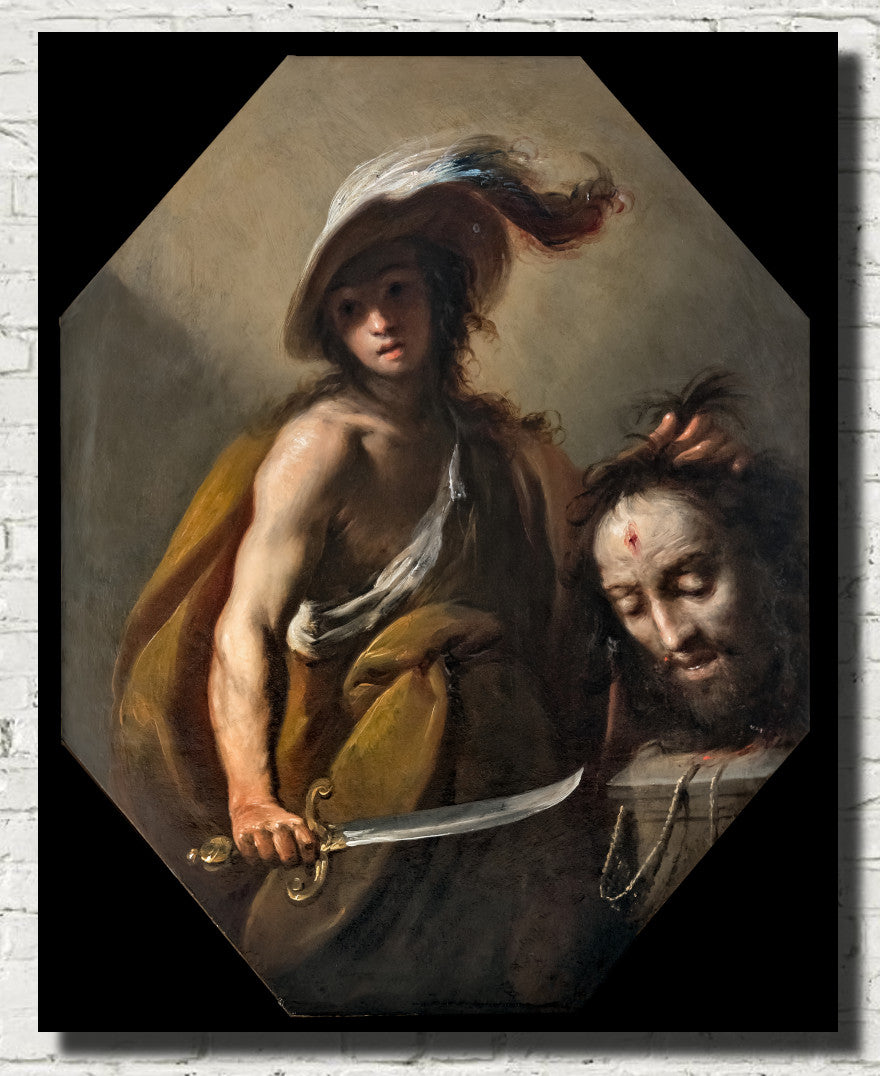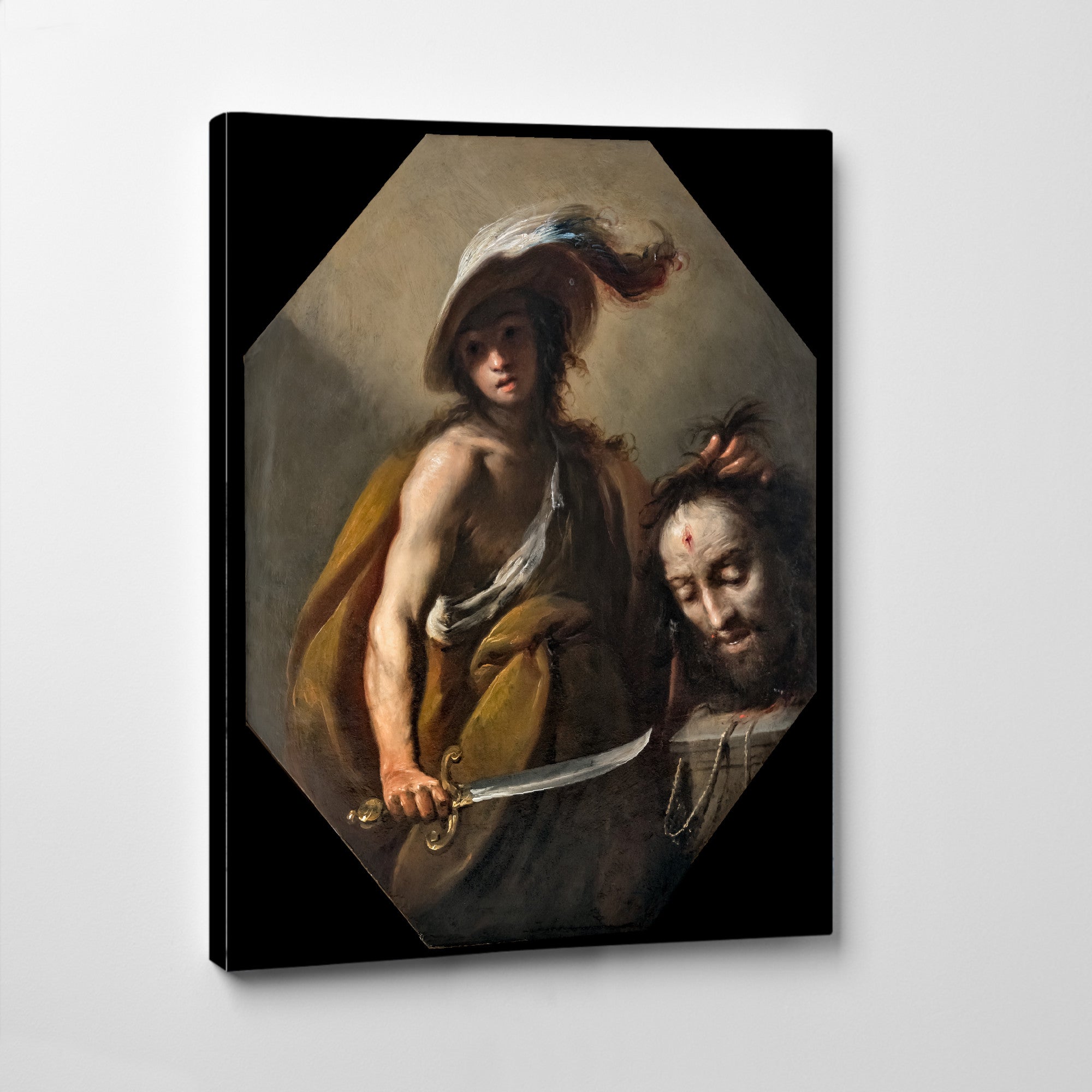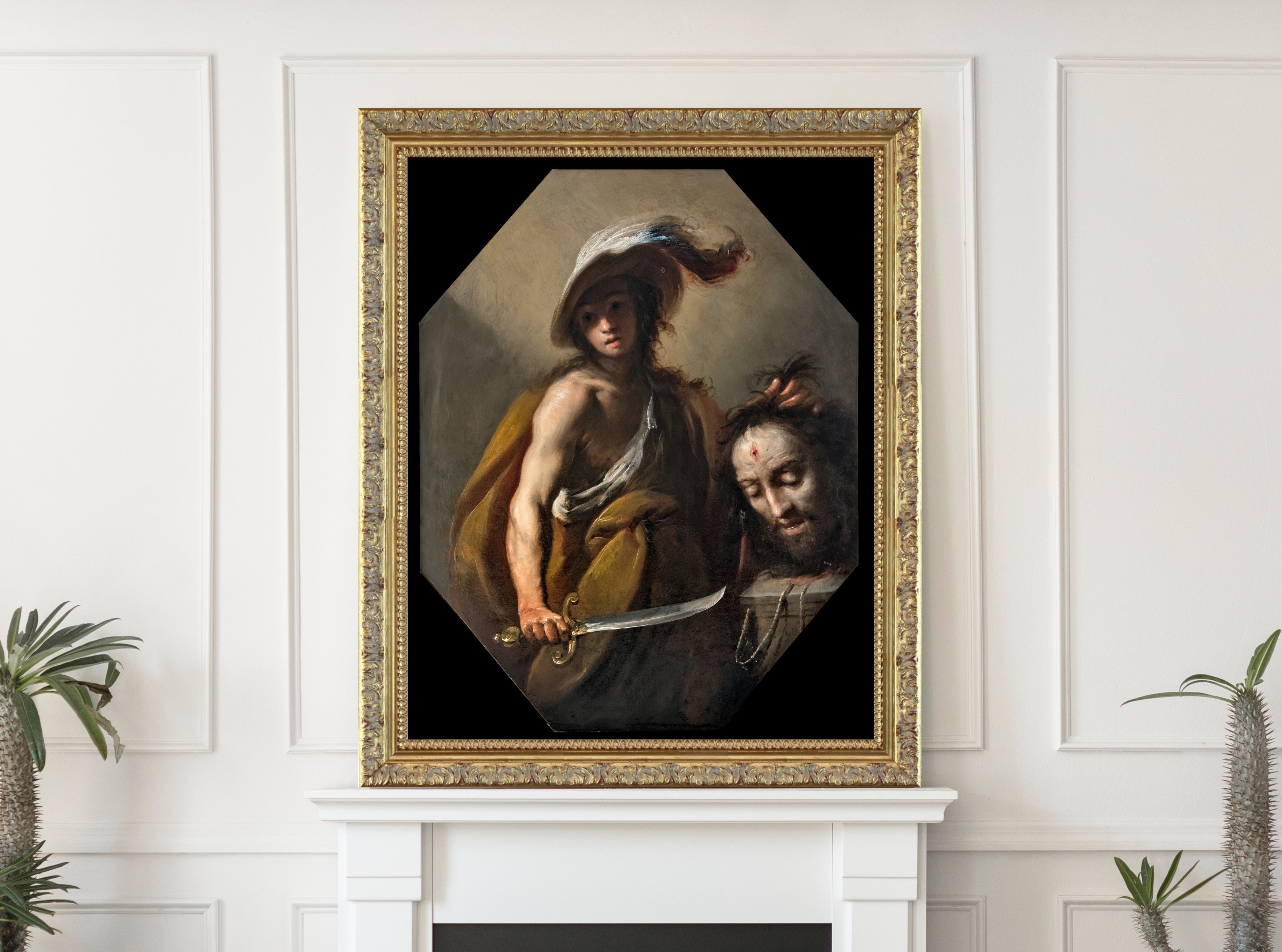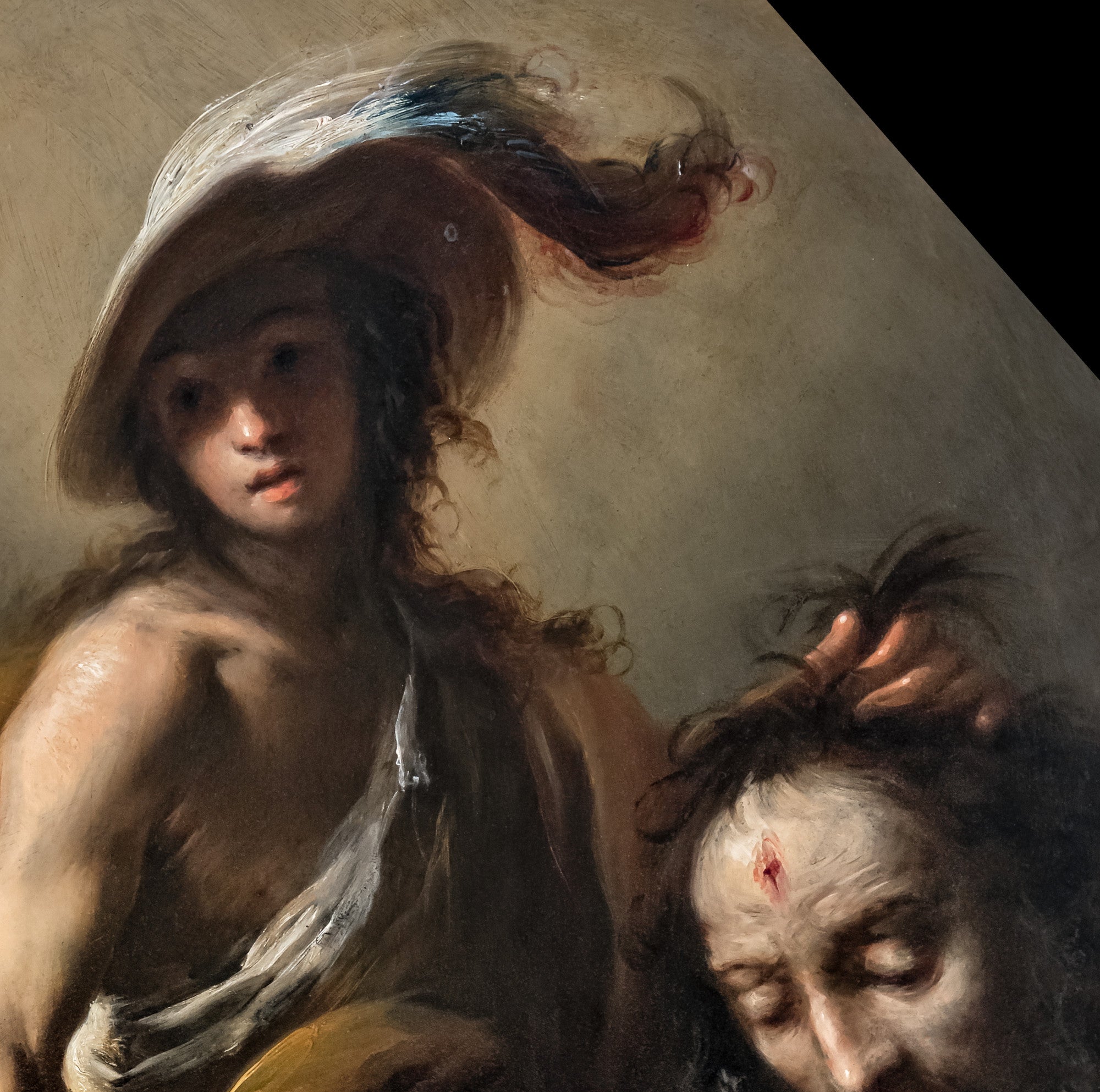Herodias with the Head of Saint John the Baptist, Francesco Cairo
Couldn't load pickup availability
BUY WITH CONFIDENCE
Antipas was slavishly allied to Rome because he needed Imperial protection against the threat of invasion from the south by the Arabs angered by his divorce of their princess, as well as to ensure he was favored by Caesar instead of Agrippa. Herodias was fanatically allied to Rome because she saw its power as a means to advancing her aims, and of eliminating her enemies. As an occupied and subjugated people, the Jews of Palestine resented Rome and their subservient political leader Antipas, and their subservient and wealthy religious elites, but made an effort to minimize resistance to the Empire so as not to draw Rome’s ire upon themselves.
All of these incidents and attitudes were loudly and widely condemned by John the Baptist, a reformer popular with the common people, who talked about a Messiah who would create an independent kingdom free of both Romans and the compromised political (Antipas’s administration) and religious (Pharisees and Sadducees) ruling classes of the Jews. John the Baptist also railed against the immorality and weak moral character of Herod Antipas and his scheming, impious queen, Herodias.
Naturally, such talk in public was an irritant to the Roman governor (Vitellius), who was Caesar’s direct representative in Judea, as well as to the Pharisees, the Sadducees, Herod Antipas and especially Herodias, who felt threatened by it and whose vanity was deeply wounded, thus inflaming a malevolent obsession for a fatal revenge against the prophet. John the Baptist had already been imprisoned for his incitement of popular indignation and hope.
Salome was Herodias’s daughter from her previous marriage, and Antipas did not know about Salome because Herodias had had her brought up away from the palace. Salome was the key to Herodias’s scheme for revenge, and had been carefully prepared for her task. During a palace feast to celebrate Antipas’s birthday, with Vitellius and the political and religious elites of the Jews in attendance, Herodias sent Salome out to perform “the dance of the seven veils” to excite Herod Antipas’s lust. Herodias knew her craven and lecherous husband well, and before all the company he soon promised Salome anything she wanted, in payment for helping him maintain the tepid approval of the assembled company, and in anticipation of gaining her favors after her dance. Salome knew her mission, and requested the head of John the Baptist on a platter. Herod Antipas was bound by his word spoken before so many witnesses from the ruling classes, and so ordered Mannaeï, the executioner in his employ, to do the dirty deed. Concern for the hopes and dreams of his Jewish commoner subjects, and their inevitable disappointment were John the Baptist to be killed, was never a consideration.
Shortly after, Mannaeï returned with the requested platter and gave it to Salome who in turn presented it to the orgasmically satisfied Herodias. The company at the party were variously pleased, amused, curious or indifferent to inspect the bloody grimacing prize. And so was the prophet of the people dispatched for the political convenience of the Empire and the compromised Jewish elite; because of the fear and lust of Herod Antipas; and because of the malevolence, megalomania and vanity of Herodias.
In 1633, Cairo moved to Turin to work as a court painter, including portraits, to Vittorio Amedeo I of the House of Savoy. Between 1637 and 1638, Cairo travelled to Rome, where he encounters the works of Pietro da Cortona, Guido Reni and of the Caravaggisti. He returns to Lombardy to complete altarpieces for the Certosa of Pavia and a church at Casalpusterlengo. He painted a St. Theresa for San Carlo in Venice. Between 1646 and 1649, he returns to Turin, and paints an altarpiece for Savigliano and the church of San Salvario. He is also known as Il Cavalière del Cairo, because in Turin, he received the Order of Saints Maurice and Lazarus in recognition of his merit.
Many of his works are eccentric depictions of religious ecstasies; the saints appear liquefied and contorted by piety. He often caps them with exuberant, oriental turbans. He is sometimes compared with his Milanese contemporary, Carlo Francesco Nuvolone, also called il Panfilo.


All prints are made using archival art stocks and UV pigment inks to give up to 200 years life. Prints are sold unframed and unmounted.
All orders for unframed fine art prints and original paintings are dispatched within 2 working days of receipt of payment.
Orders for custom framed prints are dispatched within 4 working days.
All orders are fully tracked from dispatch to delivery at your home or business.
All print and original painting orders are fully insured against loss or damage in transit. We refund or replace any damaged or lost orders.
Buy with confidence - read what our satisfied customers have to say - Reviews
Fine art papers are printed without any additional white border Please let us know at the time of ordering if you would like a small additional white border.
Rolled canvas options have an additional white border of approximately 2.5 inches (7cm) on all 4 sides to aid stretching.
Ready to hang canvas panels are stretched on 1.5 inch deep solid pine frames from sustainable forestry sources. The image is mirrored on all 4 sides to give an aesthetically pleasing finish.
Why not have us gift wrap your order and attach a personalised message to the recipient. Available for all orders. Each order is hand wrapped in high quality gift wrap with meatllic ribbon and bow. Your personalised message is printed on a card which is included with your order.
Have your hand wrapped gift delivered directly to the recipient.
Full tracking and insurance included with every order.
Please note design may vary depending upon availability
Just purchase the gift wrap option HERE
We have a wide range of frames in standard sizes and we also make custom size frames.
To order a framed print:
1. select the print size you would like along with the print materials (matte paper, fine art paper).
2. Add your print choice to the basket.
3. Choose from our range of frames
4. Select the same size as the print you have added to your basket. If the frame size you want is not listed please contact us
5. Choose from the mount or no-mount option
6. Add your frame choice to the basket
7. Proceed to checkout.
Why Choose GalleryThane?
- Printed and framed in-house
- Free UK delivery
- Free EU and USA delivery on orders over £200
- Tracking and insurance included in every order
- Fast 1-3 day dispatch
- Gift wrapping service available
- Gallery quality materials
- Sustainable, eco-friendly packaging
- Great customer support
What makes our Prints and Canvas Panels so special

Latest Giclee Printing Technology
We have invested in the latest wide format print technology to produce museum quality giclee prints utilising the highest quality pigment inks to give outstanding colour reproduction.

Museum Quality Archival Fine Art Papers
We print on the finest quality fine art papers with textured, smooth and lustre finishes for prints which last a lifetime.
From aceo miniatures to 40x80 inch large format, every print has our lifetime quality guaranteee.

Solid Wood Frames, Cotton Canvas
All of the wood for our canvas panels and frames is responsibly sourced from manages forests. Our cotton canvas is completely seedless for the highest quality reproduction possible.

